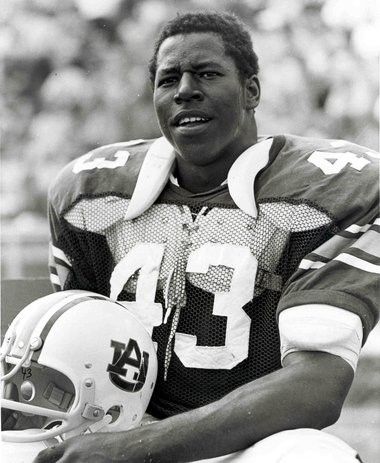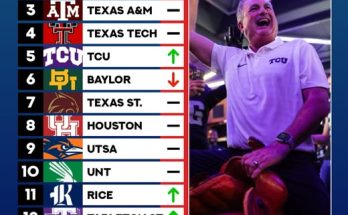**Auburn’s James Owens Made History as Alabama’s First Black Player, Breaking Racial Barriers and Overcoming Challenges**
In the annals of college football history, few stories resonate as powerfully as that of James Owens, the trailblazer who broke racial barriers at Auburn University. In 1970, Owens became the first Black football player to wear an Auburn Tigers uniform, a milestone that transcended sports and reflected the broader struggle for racial equality in the Deep South. His journey was not just about athletic achievement but about courage, perseverance, and the quiet dignity with which he faced immense adversity. Owens’ legacy is one of resilience, a testament to the strength required to be the first in a place where history, tradition, and entrenched prejudice made such progress nearly unthinkable.
The world of college football in the segregated South was a microcosm of the racial tensions that defined America in the mid-20th century. While schools in the North and West had begun integrating their teams years earlier, Southern institutions clung to segregation, often under the guise of tradition or fan preference. The University of Alabama, Auburn’s bitter rival, famously resisted integration until 1971, when John Mitchell and Wilbur Jackson joined the team. But it was Auburn, under Coach Ralph “Shug” Jordan, that took the first step by offering Owens a scholarship in 1969.
Owens, a standout athlete from Fairfield, Alabama, was no stranger to hardship. Growing up in a racially divided society, he understood the weight of his decision to attend Auburn. The university itself had only begun admitting Black students in 1964, and the football program remained all-white until Owens arrived. His presence on the team was a radical act, one that demanded not only physical skill but unshakable mental fortitude.
From the moment he stepped onto the practice field, Owens faced hostility. Some teammates resisted his presence, and opponents targeted him with brutal hits and racial slurs. Fans, even those wearing Auburn colors, were not always welcoming. Road games, particularly in staunchly segregated towns, brought torrents of abuse from the stands. Yet Owens never retaliated, never allowed the hatred to shake his focus. Instead, he let his performance speak for itself.
On the field, Owens was a force. A fullback and special teams player, he earned respect through sheer determination. His breakout moment came in 1972 during a game against Tennessee, where his critical blocks and carries helped secure a victory. Plays like that began to turn skeptics into believers, proving that talent and teamwork could overshadow prejudice. But the emotional toll was heavy. Owens later admitted that the isolation and constant scrutiny wore on him, yet he refused to quit.
Off the field, Owens carried himself with quiet grace. He avoided the spotlight, never seeking to be a political symbol despite the significance of his role. To him, playing football was about opportunity—not just for himself, but for those who would follow. His perseverance paved the way for other Black athletes at Auburn, including Thomas Gossom and James Brooks, who would become stars in their own right.
Yet Owens’ story is also one of unfulfilled potential. Despite his contributions, he was not drafted into the NFL and struggled to find his footing after football. The same resilience that defined his playing days was tested by financial difficulties and health problems in later life. It wasn’t until decades after his career ended that Auburn fully acknowledged his impact, inducting him into the Auburn Football Legends Hall of Honor in 2019. The recognition was bittersweet—long overdue, but a reminder of how far the program and the South had come since his playing days.
James Owens’ legacy is complex. He was not a superstar in the traditional sense, nor did he seek the activist role that other pioneers like Jackie Robinson embraced. But his quiet strength in the face of relentless pressure made him a different kind of hero. He didn’t just break a color barrier; he endured the fractures it caused—loneliness, anger, and the weight of expectation—without breaking himself.
Today, as college football celebrates its diverse stars, it’s important to remember the men like Owens who made that diversity possible. His story is a reminder that progress often hinges on the courage of individuals who stand alone, bearing the brunt of change so others won’t have to. In an era where racial tensions still simmer, Owens’ journey remains relevant—a testament to the power of perseverance and the enduring fight for equality.
Auburn’s James Owens may not have sought history, but history found him. And in breaking barriers, he left an indelible mark not just on a football program, but on a region’s conscience. His story isn’t just about the first Black player at Auburn; it’s about the cost of being first, and the quiet heroism required to pave the way for those who follow.



